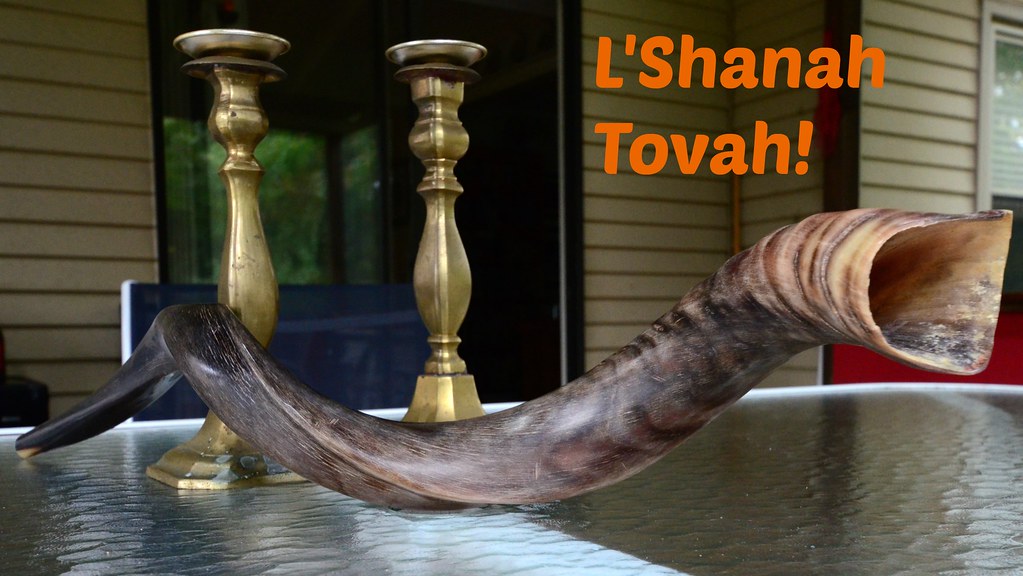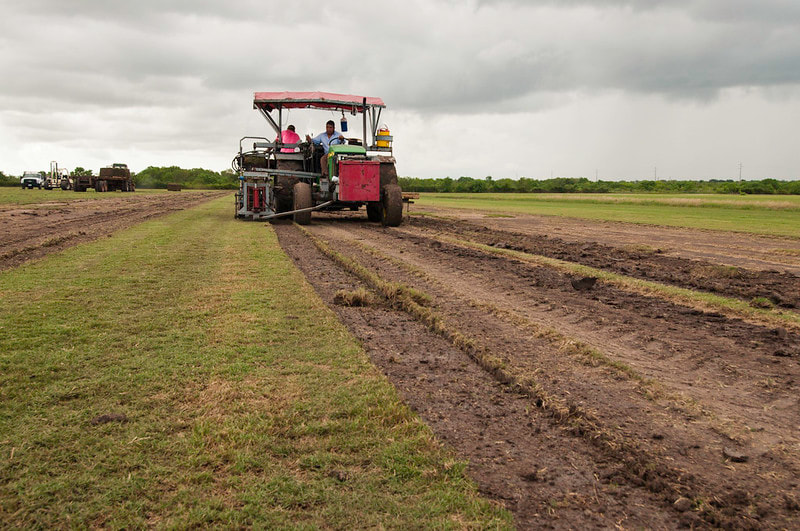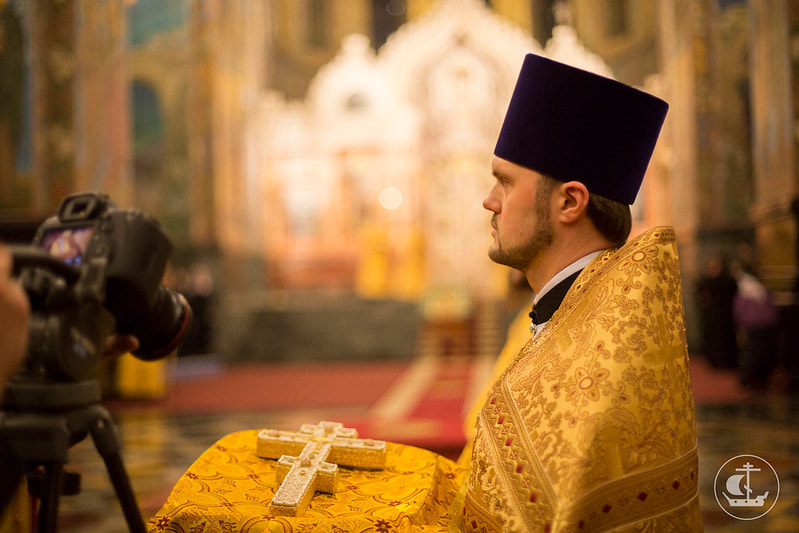|
The Hebrew calendar is one to encourage the culture of the Kingdom of heaven here on earth. It brings to our attention weekly, monthly, and yearly seasons of rest and times to connect with the Lord. These times are meant to bring us closer to Him. To do this, we must set priorities and need to ask ourselves, "What is my highest priority?" How intentional are we at setting aside special times to seek greater intimacy with the Lord? We have an opportunity this evening at sundown to join with our Jewish brothers and sisters in the celebration of the New Year 5783. After all, we have a common history with them. In Leviticus 23 we find a list of the Feasts of the Lord, and we are told in verse 4, "These are the Lord's appointed festivals, the sacred assemblies you are to proclaim at their appointed times." We also see throughout the New Testament that Jesus kept these feasts.
The spring feasts are a reflection of the Messiah's appearance on earth and His death and resurrection. The late spring feast demonstrated the power of the Holy Spirit as He poured it out on those who were gathered in Jerusalem. The fall feasts are thought to be the time when Messiah will return to earth to fulfill the Feast of Tabernacles. He will come for the pure and spotless bride called The Church and take her to heaven for eternal fellowship. Rosh Hashanah means "Head of the Year" and is also referred to as the Feast of Blowing (Yom Teru’ah) or Trumpets. It begins on the first day of the seventh month on the Hebrew calendar called Tishri. For two days sacred assemblies take place, and the shofar (ram's horn) is blown 100 times each day. It is thought to be the day that God created the world and announces the beginning of the fall feasts and what is called "The Ten Days of Awe." These days are meant for self-examination and repentance, prayer and fasting. From Biblical times, these ten days have been set apart as a time for preparation of Yom Kippur or The Day of Atonement. The Israelites would gather as their High Priest went into the presence of the Lord in the Holy of Holies, the innermost sanctuary of the Temple. Here he would present sacrifices and prayers to the Lord on their behalf. During the final celebration, the harvest of the fields is brought in, booths are built for families to live in for seven days so that they are reminded of God's care for their ancestors in the desert, time is set aside to rest and fellowship, and offerings of thanksgiving are brought to the Lord. In the book The Messianic Church Arising by Robert Heidler, the yearly feasts are called a "Cycle of Blessing." Robert writes, "The fall feasts provide the pattern for revival for any individual or nation. The fall feasts were given to create a pathway into God's glory." Here is what each feast is meant to do: The Feast of Trumpets: A wake-up call The Days of Awe: A time for seeking Him The Day of Atonement: A day to be restored The Feast of Tabernacles: A week to experience glory Robert continues. "...I believe Tabernacles is the key feast for the church today. We live in a day when God wants to draw us into His presence in a unique way. It is a time for His power and blessing to be poured out. He wants us to experience His glory." Our wake-up call comes this evening. We are being called into a new season. We are being called to awaken. God is ready to meet us. Are we ready to meet Him? We can join our Jewish brothers and sisters in the Spirit by remembering our blessings, confessing and repenting of our sins, and bringing the Lord a sacrifice of praise and thanksgiving. This will set us on a path of blessing for the new year. Our heavenly Father is a gardener. From the beginning of Scripture, we see that He placed the first human in a garden and charged them with caring for the plants. Throughout the rest of the Bible, God's creation is described in terms that would be particularly familiar with those who garden. The prophet Isaiah tells us, "For as the soil makes the sprout come up and a garden causes seeds to grow, so the Sovereign Lord will make righteousness and praise spring up before all nations." (Isaiah 61:11) God's desires for us to reap a harvest that ultimately points to His goodness and generosity. This is expressed in 2 Corinthians 9:10-11. "This generous God who supplies abundant seed for the farmer, which becomes bread for our meals, is even more extravagant toward you. First, He supplies every need, plus more. Then He multiplies the seed as you sow it, so that the harvest of your generosity will grow, you will be abundantly enriched in every way as you give generously on every occasion, for when we take your gifts to those in need, it causes many to give thanks to God." (TPT)
All of this I have been contemplating as I have watched the local sod farmer readying his fields for grass seed. The preparation of a "bed" for seed is detailed and time consuming if the farmer wants a high quality and valuable sod harvest. Initially, any weeds that are growing in the soil must be killed and raked up. The soil bed is smoothed and leveled before lime and fertilizer are added to it. Proper acidity or pH should be 6 to 7.5. Since the soil in our area tends to be acid in nature, lime brings it back to the right range for healthy seed germination. The soil is then disked or plowed three or four times to a depth of four to eight inches. Our local field is composed of well drained, silty loam, ideal for growing seed. Before the seed is planted, the field is smoothed out with a roller. Ideal planting time is late summer or early fall, as the temperatures are cooling down and natural rains are more frequent. A combination of Kentucky bluegrass and fescue are planted because there is increased strength in the mix, and it is more disease resistant. The ideal way to apply seed is in two different directions so that the farmer avoids empty spots. These days a biodegradable netting may be placed on the top of the seed to keep the young shoots from being dislodged. As the seed germinates, the farmer may fertilize again and will water it according to its need. It usually takes six months to one year for sod to mature. All during the growing season, the farmer will mow the turf regularly to keep it dense. When it is mature, the sod will be harvested by a machine that not only cuts it into layable pieces but places it in rolls on pallets. The Bible explains that we are God's seed and also His seed bed. God plants His seed to produce a harvest that gives Him glory. He tends to us, adding whatever we need to grow an ideal crop that will feed the nations. I love how Peter expresses this: "For through the eternal and living Word of God you have been born again. And this 'seed' that He planted within you can never be destroyed but will live and grow inside of you forever...The Word of the Lord endures forever!" (1 Peter 1:23,25 - TPT) Remember that we are the field for God's seed and the seed of God that grows forever. How do we become a field that is abundant for the glory of the Lord and that produces valuable seed? We must remove the weeds that are ever present, trying to take over the good seed. We must fertilize ourselves with the eternal Word of God that lives forever. We must allow Him to sow His will into our wills. Then, get ready to produce a harvest. The word "kadosh" in Hebrew is holy. Its meaning is sacred, devout, pure, spotless, and untainted. To be holy requires one to be set apart and separated from the typical pattern of life. From the beginning, it was God's desire to have a special people that were separated unto Him. He began to implement His plan through Abram. (Later Abraham) In a divine encounter, Abram was instructed to "Leave it all behind.” and "Follow me." (Genesis 12:1-2 - TPT) God gave him a promise if he would follow Him. "I will make you into a great nation, and I will bless you; I will make your name great, and you will be a blessing. I will bless those who bless you, and whoever curses you I will curse; and all people on earth will be blessed through you." (Genesis 12:2-3)
Later, a covenant was made between God and Abraham as the meaning of being separated from the other nations became clearer. The covenant required that every male be circumcised. This would be a physical sign of separation. The people God called to be separated from other nations became known as the Israelites. After they were rescued from slavery in Egypt, God gave them commandments and told their leader, Moses, "...Though the whole earth is mine, you will be for me a kingdom of priests and a holy nation." (Exodus 19:5-6) God set before the children of Israel commandments and laws to follow and put in place a tribe of people who would be consecrated to serve Him. In Israel there were twelve tribes. The tribe of Levi was separated out from the others. They owned no property, and dressed differently, and their daily provisions were supplied by the other tribes. The name Levi means joined or attached. Indeed, he and his tribe were joined to God and had the privilege of ministering in the tabernacle. Out of this tribe God called the priests (Cohanim) who were the sons of Aaron. Priests from this order would minister to the Lord and were the only ones chosen to minister in the Most Holy Place. We see levels of ministry or separation being formed. Each separation came with a cost. The people of Israel were taught how to live and knew they could not participate in the ways of the world. The cost for the tribe of Levi was that they had no inheritance and no land. They were expected to depend entirely on the Lord. Priests had additional requirements and instructions to abide by. When Rabbi Jonathan Cahn writes about these restrictions, here is what he says: "The greater the calling, the greater the separation. The greater the separation, the greater the limitations. But the greater the limitations and requirements, the greater the ministry, and the greater the blessing." Christians are called priests unto the Lord. Each of us is called to fulfill a unique purpose of God and His Kingdom. That means our separation to walk in our calling requires us to be distinctly different. We must separate ourselves from sin, the ways of the world, and the flesh. How do we view ourselves? We have been sanctified and consecrated to the purposes of the Lord. We have a different standard than the rest of the world. As members of His church, we are called the ecclesia, which means "called out ones." The only way for us to fulfill our callings is to separate ourselves from the expectations of the world. We must let God set the standard for our lives, a standard that requires holiness. They are called the clowns of the sea according to the Audubon Society Field Guide because of their "short dumpty figure, red-rimmed gleaming yellow eyes, gaudy triangular bill and a habit of waddling around, jumping from rock to rock." My husband and I decided to take a tour boat to Eastern Egg Rock Island in Muscongus Bay, six miles east of New Harbor, Maine, to see these clowns in person. You may know them better by the name "Puffin." There is a colony of them on this island where they nest. Unfortunately, all but one had left the island for the winter. Puffins mature at sea. The young ones do not return to their nesting ground for three to five years.
Our disappointment that we could not see these birds turned to fascination as we heard the story of the colony from Eastern Egg Rock Island. In the late 1800s, humans began to go to the island and collect their eggs and trap the birds for their meat and feathers. The puffin population was greatly diminished and eventually disappeared. 100 years later an ornithologist named Dr. Stephen Kress wanted to reestablish a colony of these very social birds on the island. In 1973, with the help of his associates, Dr. Kress moved puffin eggs in soup cans from Newfoundland to Eastern Egg Rock Island. They were placed in nooks of the large granite rocks that surround the island and in handmade burrows close by. Once the eggs hatched, the chicks were hand fed and protected until they could fledge. The hope was that the chicks would return to Egg Island. However, this was not the case. Realizing how social these birds are, they put up decoys of puffins so that the bird would think there was a community on the island. The birds were too smart for the scientists. The second trick to help make the puffins feel like there was a real community on the island was to bring in puffin sounds and mirrors that would reflect the decoys and the real puffins. This did the trick. More eggs were brought to the island. In 1977 one banded puffin returned. However, it took until 1981 for the birds to nest in groups. By the late 1990s there were 50 pairs of nesting puffins. We must give the puffins credit for their astuteness. They could recognize the decoy and did not set up camp until they were assured there would be a community to live with. Puffins prosper only when they live in a colony with other birds. Did you ever think that Christian families also look for a church community where they will be fed spiritually and physically? We need that kind of fellowship. We were made for love. Here is what Hebrews 10:24-25 says in The Passion Translation: "Discover creative ways to encourage others and to motivate them toward acts of compassion, doing beautiful works as expressions of love. This is not the time to pull away and neglect meeting together, as some have formed the habit of doing. In fact, we should come together even more frequently, eager to encourage and urge each other onward as we anticipate that day is dawning." Just like the coals of a fire need to be tightly packed together to burn, we need to be closely associated with other members of a congregation. As my husband says, "There are no lone rangers in the body of Christ." We need one another! There is a spiritual atmosphere when we gather that does not come when we are alone. My encouragement is that all of us need to belong to and participate with a church family. |
Joan E. MathiasCategories
All
Archives
July 2024
|




 RSS Feed
RSS Feed